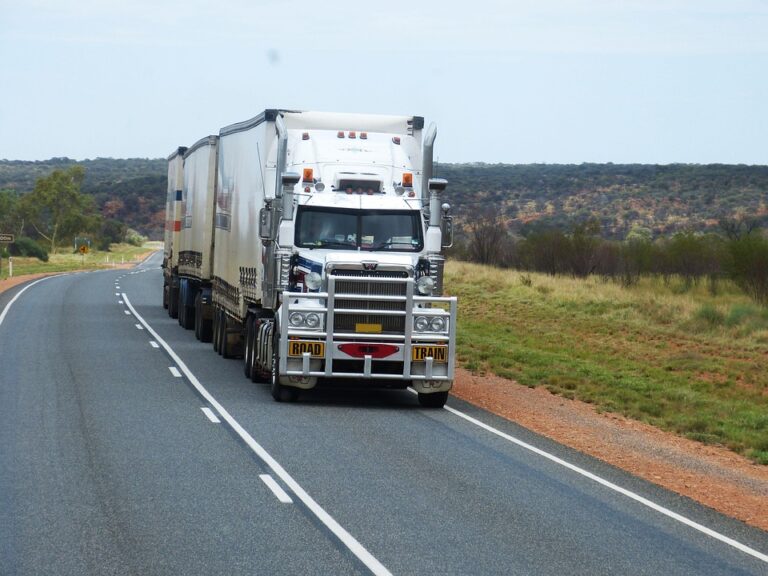Border Crossings: New Policies Affecting Trucking Between Countries
As the global supply chain continues to evolve, the trucking industry faces unprecedented challenges and opportunities. Recent policy changes have profound implications for how goods are transported across borders. In this article, we will explore the latest developments in international trucking policies and their impact on cross-border transportation.
Understanding the New Policies
Shift in Trade Regulations
In the past few years, governments around the world have increasingly implemented new trade regulations aimed at enhancing border security and improving the efficiency of goods movement. These regulations are shaped by various factors, including economic shifts, security concerns, and environmental standards.
-
Tariff Changes: Countries have been negotiating new trade agreements that may include tariff reductions or increases. Understanding these variations is crucial for trucking companies looking to optimize routes and costs.
- Customs Procedures: New customs procedures, including electronic data interchange (EDI), are designed to streamline the documentation process. Trucking companies must adapt to these digital platforms to ensure their loads clear borders without delays.
Environmental Regulations and Emission Standards
With rising concerns about climate change and pollution, a host of new environmental regulations have been adopted by various countries. These regulations often impose stricter emissions standards on trucks crossing borders.
-
Green Initiatives: Many countries are adopting green policies that mandate lower emissions from freight transport, pushing trucking firms to invest in eco-friendly technologies.
- Incentives for Compliance: There are often incentives provided by governments for companies adopting greener practices, including tax breaks and funding for new technologies.
Challenges for Trucking Companies
Increased Costs
One of the most significant effects of new cross-border policies is the rise in operational costs for trucking companies.
-
Compliance Costs: Trucking firms must invest in technology and training to comply with new regulations, leading to increased operational costs.
- Insurance and Liability: Variations in insurance requirements across countries can complicate liability for goods in transit, further adding to overall expenses.
Delays and Logistics Complications
Policy changes can lead to longer wait times at borders, disrupting carefully planned logistics.
-
Border Processing Times: New customs procedures can result in bottlenecks at crossing points, extending delivery times.
- Mandatory Inspections: Stricter inspections for trucks can lead to additional delays and the potential for costly fines if compliance is not met.
Strategies for Adaptation
Embracing Technology
Trucking companies must leverage technology to navigate the complicated landscape of new border regulations effectively.
-
Real-Time Tracking: Tools such as GPS tracking can help management monitor trucks in real-time, allowing for better responses to delays.
- Documentation Management: Advanced software solutions can simplify the documentation process involved in customs compliance, making it easier to keep paperwork organized and readily accessible.
Partnerships and Relationships
Building strong relationships with customs brokers and trade facilitators can significantly ease the burden of navigating new policies.
-
Customs Brokers Advantage: By partnering with experienced customs brokers, trucking companies can ensure they are up-to-date on the latest regulations and avoid potential regulatory pitfalls.
- Networking with Local Authorities: Establishing connections with local enforcement can provide valuable insights into navigating inspections and compliance checks.
Future Trends in Cross-Border Trucking
As policies continue to evolve, several trends are emerging that may shape the future of trucking across borders.
Digitalization of Customs Processes
The future of cross-border trucking is likely to see an increased emphasis on digital customs processes. Governments are making significant investments in technology to improve efficiency and transparency.
Focus on Sustainability
As environmental concerns mount, expect pushes for heavier regulations regarding fuel efficiency and emissions from trucks.
Adoption of Alternative Fuels
With ongoing research into environmentally friendly fuels, it is possible that trucking companies will see a shift towards alternatives like electric or hydrogen-powered vehicles.
Conclusion: Navigating Change in the Trucking Industry
The landscape of cross-border trucking is changing rapidly due to new policies aimed at enhancing security, improving efficiency, and addressing environmental concerns. By embracing technology, fostering partnerships, and staying ahead of emerging trends, trucking companies can navigate these challenges effectively. As these policies continue to evolve, staying informed and adaptable will be key to maintaining competitive advantages in the global shipping arena.
Call to Action: Stay updated on the latest trucking news and policies by subscribing to our newsletter at Buzzo.live. Stay informed, stay compliant, and drive your business forward.


